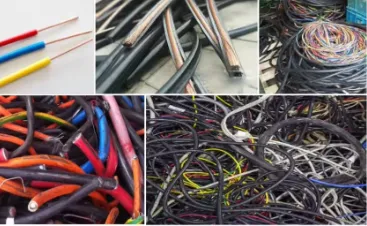
9 月 . 01, 2024 04:46 Back to list
Understanding the Pricing of Hammer Crushers
Hammer crushers are essential machinery in various industries, primarily used for size reduction and crushing of materials such as coal, limestone, gypsum, and other aggregates. Their effectiveness and efficiency have made them popular in sectors like mining, cement, and recycling. However, potential buyers often find themselves puzzled by the varying prices of hammer crushers in the market. In this article, we will explore some of the factors that influence hammer crusher price and provide insight into making an informed purchase decision.
1. Material and Construction Quality
One of the primary factors affecting the price of a hammer crusher is the quality of materials used in its construction. High-quality steel and components ensure durability and longer life, which may lead to a higher upfront cost. However, investing in a well-built machine can result in lower operational costs in the long run due to reduced maintenance needs and increased reliability.
2. Capacity and Size
Hammer crushers come in various sizes and capacities to suit different production needs. Typically, larger crushers with higher output capacities are more expensive than smaller models. Buyers must assess their specific production requirements and choose a machine that can effectively handle the desired workload while keeping costs within budget.
3. Brand Reputation

The brand of the hammer crusher also plays a critical role in determining price. Established manufacturers with a reputation for quality and reliability often charge a premium for their machines. This cost reflects the brand’s investment in research and development, customer support, and warranty services. For many operators, the assurance of a reputable brand is worth the additional investment.
4. Technology and Features
Modern hammer crushers often incorporate advanced technologies that enhance performance and efficiency. Features such as adjustable rotor speeds, automated controls, and improved safety mechanisms can add to the price. While these features contribute to higher initial costs, they may lead to greater efficiency and lower operating costs over time. Buyers should consider the long-term benefits of such technologies when evaluating price.
5. Market Demand and Supply
The economic principle of demand and supply also plays a role in hammer crusher pricing. During times of high demand, such as in the construction or mining industries, prices may increase. Conversely, in a market with an oversupply of machinery, prices might be lower. Keeping an eye on market trends can help potential buyers identify the optimal time to purchase.
Conclusion
In summary, the price of a hammer crusher is influenced by various factors including the quality of materials, size and capacity, brand reputation, technological features, and market dynamics. When considering a purchase, it’s crucial to weigh these factors against specific operational needs and budget constraints. While a higher price tag may seem daunting, the long-term benefits of investing in a reliable and efficient hammer crusher often outweigh the initial costs, ensuring better performance and profitability for businesses in the long run.
Latest news
Unveiling the Power of Eddy Current Separator
NewsSep.25,2024
Transform Your Home Recyclin:home metal shredder
NewsSep.25,2024
The Future of Waste Management with Recycling Line Picker
NewsSep.25,2024
The Benefits of a Metal Recycling Plant
NewsSep.25,2024
Revolutionize Material Separation with Onwang Technology
NewsSep.25,2024
Innovative Waste Management: Unveiling the MSW Sorting Plant
NewsSep.25,2024